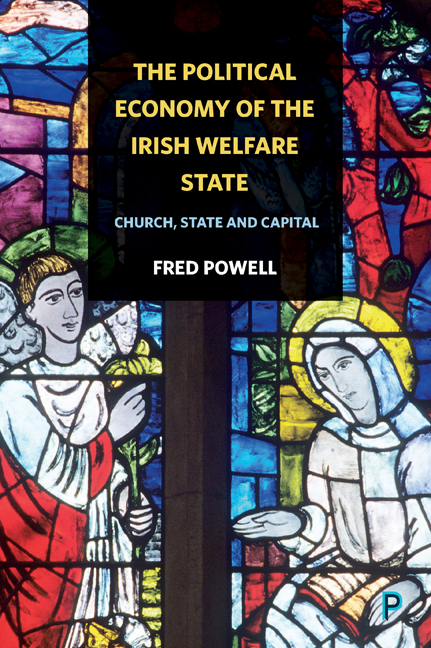Book contents
- Frontmatter
- Dedication
- Contents
- Preface
- Introduction
- one Why the welfare state matters
- two Revolution, culture and society
- three Welfare in the Free State
- four Religious nationalism, sectarianism and anti-semitism
- five The welfare state debate
- six Poverty and social inequality
- seven Liberty, gender and sexuality
- eight The marketisation of the welfare state
- nine Crisis, austerity and water
- ten Conclusion
- References
- Index
eight - The marketisation of the welfare state
Published online by Cambridge University Press: 08 April 2022
- Frontmatter
- Dedication
- Contents
- Preface
- Introduction
- one Why the welfare state matters
- two Revolution, culture and society
- three Welfare in the Free State
- four Religious nationalism, sectarianism and anti-semitism
- five The welfare state debate
- six Poverty and social inequality
- seven Liberty, gender and sexuality
- eight The marketisation of the welfare state
- nine Crisis, austerity and water
- ten Conclusion
- References
- Index
Summary
Ireland has no guiding vision. The lack of such a vision has led to a lack of coherence at the core of public policy, i.e. a failure to integrate policy developments across many areas of government policy ranging from education to health from infrastructure to social services from economic development to fiscal policy. There are many who dismiss the need for such a guiding vision arguing that at best it is irrelevant and at worst a total distraction from what should be the major focus of governments and public policy makers, i.e. the development of relevant policies to address current issues of concern. There are others however who argue that without a guiding vision policy development will at best be haphazard and at worst be working at cross purposes with itself.
Sean Healy, Brigid Reynolds and Michelle Murphy (2014: 25)This statement, delivered in a conference paper compiled by Social Justice Ireland (Healy et al, 2014, including two of Ireland's most respected anti-poverty campaigners over several decades), is a profound indictment of the Irish welfare state. The case made rests on an absence of a coherent vision and set of values, such as justice, decency and fairness, with which to underpin Ireland's social architecture. Fr Sean Healy and Sr Brigid Reynolds had previously referenced this theme at the social policy conference in 30 September 1988 (Reynolds and Healy, 1988), warning against a growing social divide and the consequences of models of development driven by economic growth and wealth creation at the expense of social equality. This approach has, arguably, produced a residual welfare state. In this process, social citizenship and public welfare are disconnected, with the poor forming a residual class in a consumer society, where wealth and privilege increasingly define citizenship and entitlement. This is despite the official rhetoric of social partnership, which dominated the policy agenda between 1987 and 2007.
Ultimately, what Healy et al (2014) are referring to is the developmental consequences of promoting a competitive market model, rather than the widely accepted Keynesian welfare state model. Michelle Norris (2016: 203-60) has characterised this developmental phase as the ‘marketisation’ of the Irish welfare state. Her description captures the uniqueness of the Irish model in Europe and its resemblance to East Asian welfare state models (Norris, 2016: 266).
- Type
- Chapter
- Information
- The Political Economy of the Irish Welfare StateChurch, State and Capital, pp. 225 - 252Publisher: Bristol University PressPrint publication year: 2017



